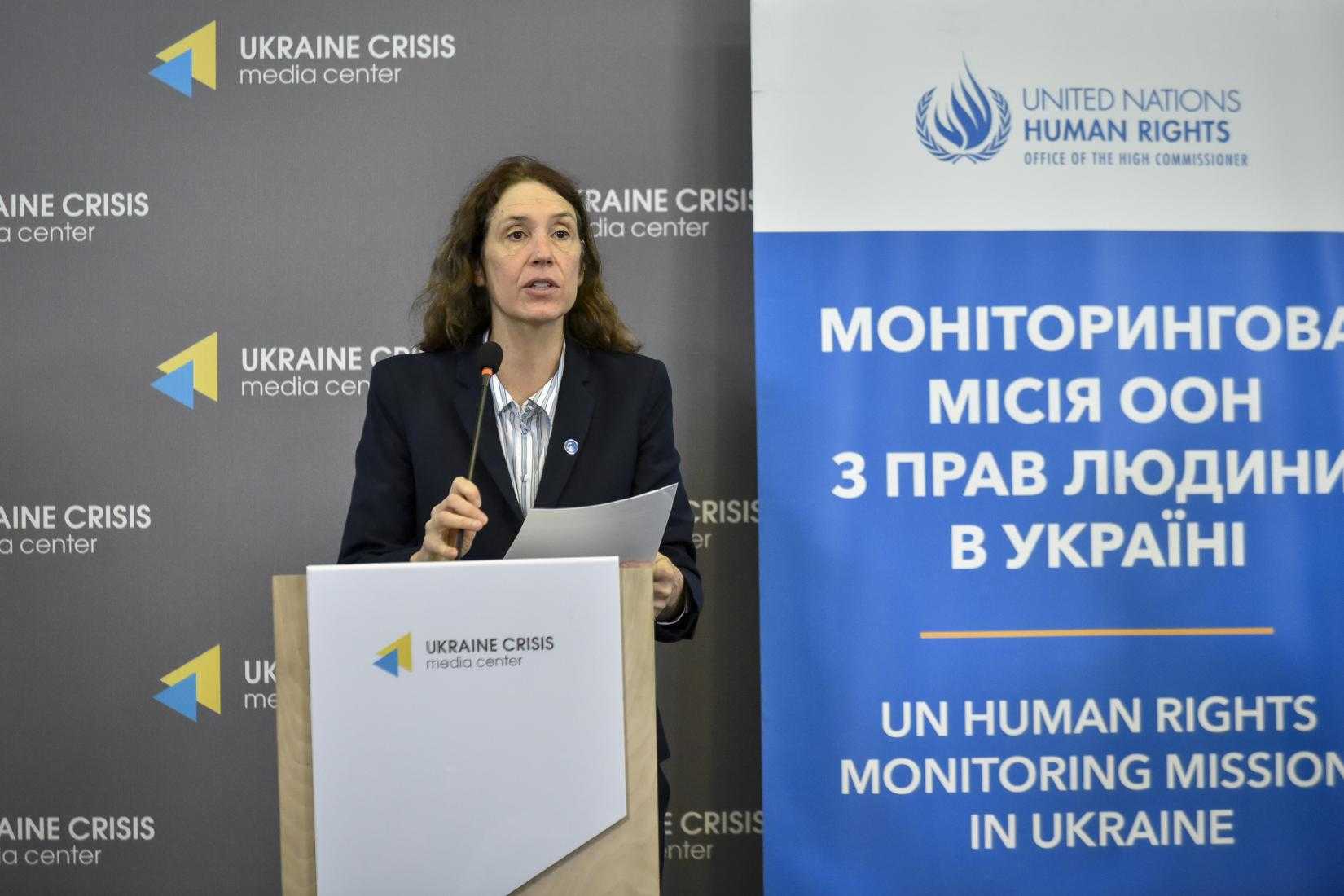The armed attack of Russia has led to considerable deterioration of the situation with human rights compliance in Ukraine, – UN HRMMU

The Department of UN Human Rights High Commissioner for Human Rights (DHCHR UN) has prepared a report regarding the situation with human rights in Ukraine in the context of the armed attack from the Russian Federation. The report spans the period from the 24th of February to the 15th of May 2022 and was prepared based on the results of work of the UN Human Rights Monitoring Mission in Ukraine (HRMMU).
International human rights violations and International humanitarian law violations, which were documented by the Mission, have been described in detail in the report. It contains data about victims among civil population, the damage inflicted to civil infrastructure and housing, murders, unlawful detentions and abductions, tortures and abuse, including rape, connected with the conflict, and other human rights violations.
The influence of military action on people and vulnerable groups, such as Internally Displaced Persons, Roma, the disabled and the elderly people, is considered in this report.
“Quite a number of military means and techniques violated the norms of International Humanitarian Law, which regulate conducting of combat operations. For instance, in many cases the armed forces of the Russian Federation and, to a lesser extent, the armed forces of Ukraine did not comply with the principles of differentiation, ratability and prevention measures to avoid or keep to a minimum the losses among civil population and damage to civil buildings”, the report says.
As of 15 May the DHCHR UN registered numerous unlawful killings, including a total number of executions of civilians, in more than 30 Ukrainian settlements in Kyiv, Chernihiv, Kharkiv and Sumy regions, committed while these territories were under the control of the armed forces of Russian Federation at the end of February and beginning of March. In general, the DHCHR received information about over 300 such killings.
In this report, various extents of IHL and international human rights law violations by both parties the treatment of the prisons of war and hors de combat persons were documented, namely the cases of executions without a trial, refusal of first medical aid, tortures and harsh treatment, displaying for a public interest, violation of internment conditions.
“The armed attack was also marked by sexual violence, connected with the conflict. The HRMMU received numerous statements, was able to check and confirm 23 cases of sexual violence connected with the conflict, namely, rape, gang-rape, torturing, public nudity forcing, threats of sexual assault. In most cases there were committed in areas controlled by armed forces of the Russian Federation, but there were also cases in Government-controlled areas”, authors of the document add.
248 cases of unlawful detention of local authorities representatives, journalists, activists and other civil persons were recorded in the report. Most of these cases may be qualified as forced abductions, possibly committed by the armed forces of the Russian Federation and associated armed groupings.
The document also contains data on confirmed statements about forced military draft of men by local armed groups in Donetsk and Luhansk which are connected with Russia.
HRMMU is alarmed by the safety risks faced by the journalists and media employees in Ukraine. In this report 17 cases of deaths of journalists, media workers and bloggers during military action were documented, as well as 14 cases of injuries inflicted to journalists.
In this report, 41 cases of persecution of Crimea residents for “discreditation” or “calls for interference” with the armed forces of the Russian Federation were documented.
The report also contains specific recommendations for the Russian Federation, Ukraine and the international community and urges for their rapid implementation in order to improve the situation with human rights in Ukraine and effectively protect civil population.
At the moment the report is available in English, Ukrainian and Russian versions will appear soon.

